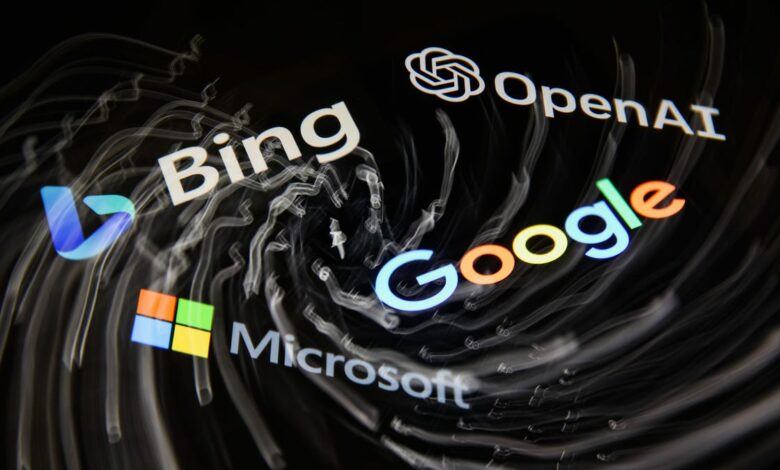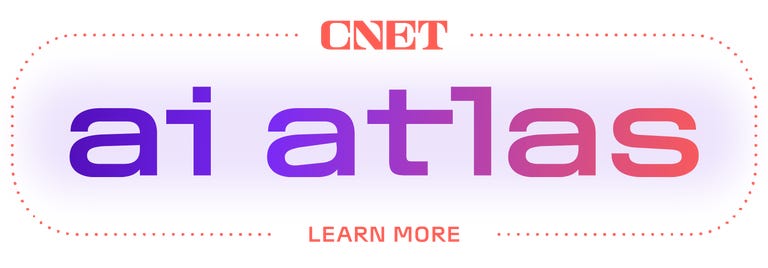Microsoft, OpenAI Chase Google in AI Search as Senate Passes AI Deepfakes Bill



Ask anyone who has more than passing knowledge of how generative AI chatbots, like ChatGPT, work and they’ll tell you that you shouldn’t be using these tools as you would a search engine, which can point you to original sources and serve up lists of articles, websites, videos and images related to the topic you’re interested in.
That’s because chatbots are more akin to summarization engines. They use the vast amounts of training data they’ve slurped up from wherever to provide you with an answer to a question or prompt — with the caveat that their training data might not include the latest and/or most reliable sources and that some or all of the answer provided might be made up, since chatbots have a problem with hallucinations.

Those limitations aside, AI companies think users will be most interested in a service that not only provides AI-generated answers to their prompts, but also works like a search engine by providing links to the (hopefully) relevant and reliable sources those answers are based on.
That’s the reason Google, in May, made a big splash about how it’s building AI features into all its services, including adding AI-powered summaries into its popular, profitable and market-dominating search engine. It’s also the reason why, this past week, Microsoft announced an experiment with AI summaries in its Bing search engine. And it’s why OpenAI, maker of ChatGPT, unveiled a prototype called SearchGPT, which it said aims to provide answers based on more timely information, along with links to relevant sources.
Welcome to AI Wars: Episode 1 — Search.
After adding gen AI-powered chat answers in Bing last February, Microsoft announced a new experience Wednesday, called Bing generative search. According to a company blog post, the new search offering uses gen AI technology to give users a results page that provides a summarized answer that’s “easy to read and understand, with links and sources that show where it came from.” Regular search results will continue to be “prominently displayed on the page like always,” Microsoft added.
“By combining the power of generative AI and large language models (LLMs) with the search results page, Bing’s generative search creates a bespoke and dynamic response to a user’s query,” Microsoft said. As an example, it said, if you use Bing to search for “What is a spaghetti western?” you’ll now get an “AI-generated experience that dives into the film subgenre, including its history and origins, top examples and more.”
One thing, though: You might not get that AI-based bespoke experience yet, since it’ll be available only to a “small percentage” of user query results at first, CNET’s Ian Sherr reported.
OpenAI’s SearchGPT will also be available only on a limited basis. You’ll need to sign up for the wait list for the product, which the company eventually expects to tie into ChatGPT, CNET’s Gael Cooper reported. OpenAI said SearchGPT, which it calls a “temporary prototype,” will be limited to 10,000 users and publishers at launch.
“Getting answers on the web can take a lot of effort, often requiring multiple attempts to get relevant results,” OpenAI said in a blog post. “By enhancing the conversational capabilities of our models with real-time information from the web, finding what you’re looking for can be faster and easier.”
The company said it’s testing SearchGPT and will be working with publishers to get feedback. Reminder: Some publishers have agreed to license their content to OpenAI and help train its LLM, while other publishers, including The New York Times, have sued the San Francisco startup for slurping up their copyrighted stories without permission, compensation or attribution.
OpenAI has said the NYT’s lawsuit is “without merit,” but in its SearchGPT blog post it tacitly acknowledged the attribution issue, saying that it’s working with “publishers by prominently citing and linking to them in searches. Responses have clear, in-line, named attribution and links so users know where information is coming from and can quickly engage with even more results in a sidebar with source links.”
Google, meanwhile, isn’t just standing still as its tech rivals come after its cash cow. Shortly after debuting summaries called AI Overviews on its search results pages, Google scaled back the feature after users started getting misleading, incorrect and flat-out bizarre answers from the gen AI search tool. (In response to a question about daily rock intake, it recommended we eat “at least one small rock per day.” (The source of that advice: a 2021 story on humor site The Onion.)
Last week Google announced a few updates to its gen AI service, Gemini, including offering links to related content within Gemini’s responses. “We’ve also heard that people enjoy exploring new topics with Gemini as their go-to research partner. So we’re now displaying links to related content for fact-seeking prompts in Gemini — continuing our work to reduce hallucinations and making it easier to explore websites that help you learn more,” the company said in a blog post.
To help tackle the hallucination problem — which Google defines in part as a problem with the training data (though it won’t tell us what’s in its training data) — the company also announced a double-check feature in Gemini that “verifies responses by using Google Search to highlight which statements are corroborated or contradicted on the web. For information that is contradicted, you can easily dive deeper to verify the information yourself.”
What are the takeaways from the AI search war, so far? Well, there’s the simple fact that gen AI is going to become a bigger part of the tech services and tools we use every day, whether you want to get AI-generated summaries or not.
And while we’ll start seeing attribution, in the form of links, to the sources of information these AI services are citing, we may need to fact-check those sources more than we did in the good old days of search to now determine if the information is reputable and fact-based, given the hallucination problem. Or maybe not.
Either way, the quest for new approaches to adding AI to search is on.
Here are the other doings in AI worth your attention.
Sam Altman asks US to lead global ‘democratic’ AI coalition, while US lawmakers question OpenAI’s approach to safety
Sam Altman, CEO of OpenAI, penned an essay in The Washington Post last week urging the US to lead a global coalition of democratic societies that will work together on policies and investments to counter the threat from authoritarian regimes, including China, that are touting a different, darker vision for how AI may be deployed.
“Who will control the future of AI?” Altman wrote. “Will it be one in which the United States and allied nations advance a global AI that spreads the technology’s benefits and opens access to it, or an authoritarian one, in which nations or movements that don’t share our values use AI to cement and expand their power?”

Altman said the public and technology sectors in the US and like-minded countries need to get “four big things right to ensure the creation of a world shaped by a democratic vision for AI.” His call for action comes after China showed off technologies at the World Artificial Intelligence Conference in Shanghai this month that “rival American systems” and are already in the hands of consumers and developers, according to The New York Times.
Those four things include crafting “robust security measures” including cyberdefense and data security innovations to “prevent hackers from stealing key intellectual property such as model weights and AI training data.” Altman also calls on the US to invest more in infrastructure, including broadband networks, data centers and power plants to run AI systems, and to develop commercial policies and “rules of the road for what sorts of chips, AI training data and other code — some of which is so sensitive that it may need to remain in the United States — can be housed in the data centers that countries around the world are racing to build to localize AI information.”
Last, Altman asks that the US think “creatively” about new models for developing and deploying AI, including making sure there’s a role in AI development for the “global south and other nations who have been historically left behind.”
There’s a lot more in his essay, with Altman telling Axios in an interview that he’s not seeing the “level of seriousness” and sense of urgency from Washington or states. “The future continues to come at us fast,” he told the news group.
I’m sure we can all agree these issues merit serious discussion and that the US has an important role to play in the future of AI, given the investments and innovation coming from US companies like OpenAI, Google, Meta, Microsoft, Apple and Anthropic.
But I hope Altman will also answer questions about how OpenAI is handling issues around AI safety and security, given the exit of some high-profile executives working on AI risks and safety, and reports by CNBC and The Information that the company’s top safety executive was reassigned to a job centered on AI reasoning instead of focusing on a team that was, as CNBC noted, “tasked with tracking, evaluating, forecasting and helping protect against catastrophic risks” related to AI.
Five US senators — four Democrats and one Republican — also want Altman to answer questions about how OpenAI is handling safety, according to a July 22 letter sent to him and obtained by The Washington Post. Given the staff exits, and a letter penned by current and former employees of OpenAI and other AI companies warning of an AI apocalypse, the senators asked that Altman provide information “about the steps that the company is taking to meet its public commitments on safety, how the company is internally evaluating its progress on those commitments, and on the company’s identification and mitigation of cybersecurity threats.”
The senators have asked OpenAI to respond to 12 questions by Aug. 13. “Given OpenAI’s position as a leading AI company, it is important that the public can trust in the safety and security of its systems,” they wrote. “This includes the integrity of the company’s governance structure and safety testing, its employment practices, its fidelity to its public promises and mission, and its cybersecurity policies.”
Stay tuned.
Senate passes bill protecting victims of AI porn deepfakes
The Defiance Act, a federal bill that will “allow victims of nonconsensual sexually explicit deepfakes to sue people who create, share and receive them” unanimously passed the Senate and now heads to the House of Representatives for a vote, NBC News reported this past week.
The Defiance Act (“defiance” stands for “disrupt explicit forged images and non-consensual edits”), is the first nationwide protection for “survivors of nonconsensual deepfake pornography,” Rep. Alexandria Ocasio-Cortez, who’s sponsoring the bill in the House, and who’s been a victim of deepfake images, said in a statement.
“Over 90% of all deepfake videos made are nonconsensual sexually explicit images, and women are the targets 9 times out of 10,” she said.
NBC News noted that the production of nonconsensual sexually explicit deepfakes has “skyrocketed” in the past year. Though female celebrities, influencers and public figures were among the first targeted, “cases have also sprung up at middle and high schools around the world, with teen girls frequently being victimized by their male classmates,” the outlet said.
In case you don’t know, the outlet added that deepfakes “typically refer to digitally manipulated images that falsely depict someone saying or doing something. They often take the form of sexually explicit photos and videos spread online. The material frequently merges a victim’s face with a body in a pornographic video.”
Senate Judiciary Chair Dick Durbin, who introduced the bill in the Senate along with Sen. Lindsey Graham, said in a post on X after the vote that “Current laws don’t apply to deepfakes, leaving women and girls who suffer from this image-based sexual abuse without a legal remedy. It’s time to give victims their day in court and the tools they need to fight back.”
New jobs to be created by AI — and roles that will feel the most pain
You don’t need to have a degree in computer science to go after one of the new jobs expected to be created by the AI boom, CNET’s Lisa Lacy reported. Lacy noted that from December 2022 to September 2023, applications for AI jobs in the US surged 19% on LinkedIn.
While there definitely will be opportunities for AI software engineers to build and protect AI systems, companies are also seeking out AI ethicists, people whose job it is to evaluate “AI’s legal, moral and social implications to implement guidelines for AI’s development and use in an organization, as well as its potential impact on the outside world,” Lacy wrote.
As for jobs that will be the most affected, bank tellers, travel agents, customer service reps, writers (ouch) and marketers may be among the most displaced as companies turn to AI tools to handle that work.
No one knows for sure how jobs of the future will be affected by AI, so Lacy offered up a quick history lesson on how the evolution of the fashion industry served as a driver for new kinds of jobs.
“Prior to the Industrial Revolution, people typically had two outfits — one for work and one for church. However, following the advent of industrial spinning and fabric making after the Civil War, clothing started to become about more than just staying warm. It became more common for individuals to have closets full of clothes, which led to variety, which spurred style and creativity, which helped develop fields like design, advertising, modeling and magazine publishing.”
When it comes to AI, I’m hoping we’ll see a resurgence in jobs for fact-checkers. ChatGPT backs me up here, telling me that “the adoption of AI technology does have the potential to lead to a resurgence in jobs for fact-checkers. While AI can automate many tasks and processes, there are limitations to what AI can effectively fact-check, especially when it comes to context, nuance, and subjective content.”
(As a reminder, this column was entirely researched, written, copyedited and fact-checked by humans.)
AI can’t do math. Video game actors go on strike. AI bots scrape away
Though AI has the potential to boost human creativity and free us from the drudgery of repetitive tasks, the AI industry continues to cope with some serious growing pains. Here are three items that caught my eye this past week.
AIs are mathematically challenged
Gen AI chatbots and tools may’ve shown some prowess in writing poetry, wedding vows, thank you notes, report summaries and answers to your questions (or prompts), but they have a hard time doing math, The New York Times reported.
The reason: AI chatbots — which have been described as autocomplete on steroids because they provide answers based on identifying what they see as patterns in billions of bits of training data — weren’t really designed to do math. “They are fine tuned for determining probabilities, not doing rules-based calculations,” wrote NYT reporter Steve Lohr. “Likelihood is not accuracy, and language is more flexible, and forgiving, than math.”
The takeaway, he added, may just be that “the world’s smartest computer scientists, it seems, have created artificial intelligence that is more liberal arts major than numbers whiz.”
Video game actors to strike
A year after Hollywood writers and actors ended their strikes with studios and the entertainment industry by wresting some concessions related to the rollout of AI, video game voice actors and animations artists are “going on strike for the first time since 2017,” Kotaku.com reported. That follows nearly two years of negotiations “with Activision, Epic Games, and other big publishers and studios over higher pay, better safety measures, and protections from new generative AI technologies,” the outlet said.
According to the Associated Press, the Screen Actors Guild-American Federation of Television and Radio Artists said that though there has been progress on negotiations over wages and job safety, studios won’t negotiate on gen AI in video game contracts. “Without guardrails, game companies could train AI to replicate an actor’s voice, or create a digital replica of their likeness without consent or fair compensation,” the union told the AP.
The video game contract covers over 2,500 “off-camera (voiceover) performers, on-camera (motion capture, stunt) performers, stunt coordinators, singers, dancers, puppeteers, and background performers,” the AP said, citing SAG-AFTRA.
Blocking bots is not a copyright fix
The CEO of iFIxit, a site that offers repair information on “hundreds of devices and thousands of parts,” tweeted last week that a web scraper from Anthropic, the AI company behind Claude, had “hit” iFixit servers “a million times in 24 hours.”
“You’re not only taking our content without paying,” wrote CEO Kyle Wiens, “you’re tying up our devops resources. Not cool.”
Wiens noted that in iFixit’s terms of service, use of the company’s content for training an AI LLM, like Claude, is “expressly forbidden.” He added that if Anthropic wants to “have a conversation about licensing our content for commercial use, we’re right here.”
404 Media asked Anthropic about the iFixit scraping and was referred to a blog post that says it’s up to website owners to “specifically block Anthropic’s web crawler, called ClaudeBot.”
Anthropic basically says in its post that anything made public on the internet is up for grabs “as per industry standard. … Our crawling should not be intrusive or disruptive. We aim for minimal disruption by being thoughtful about how quickly we crawl the same domains and respecting Crawl-delay where appropriate.”
It then offers up code that website owners, like publishers, can use to “limit crawling activity.”
I don’t know about you, but I think hitting a website a million times in a day is intrusive and disruptive. And I don’t know who decided the industry standard is that you have to protect yourself against content scrapers rather than assume they can’t just take your content. (FYI, CNET blocks bots that want to scrape our content to train their LLMs.)
I’ll give the final word to 404 Media. “Across the board, AI companies almost never respect terms of service, which is interesting because many of them have very long terms of service agreements themselves that sometimes restrict what users can do. In a paper published last week … researchers at the Data Provenance Institute found that many websites have requested that their content not be scraped in their terms of service, but that often does not do anything.”
Any thoughts on this, Sam Altman?




